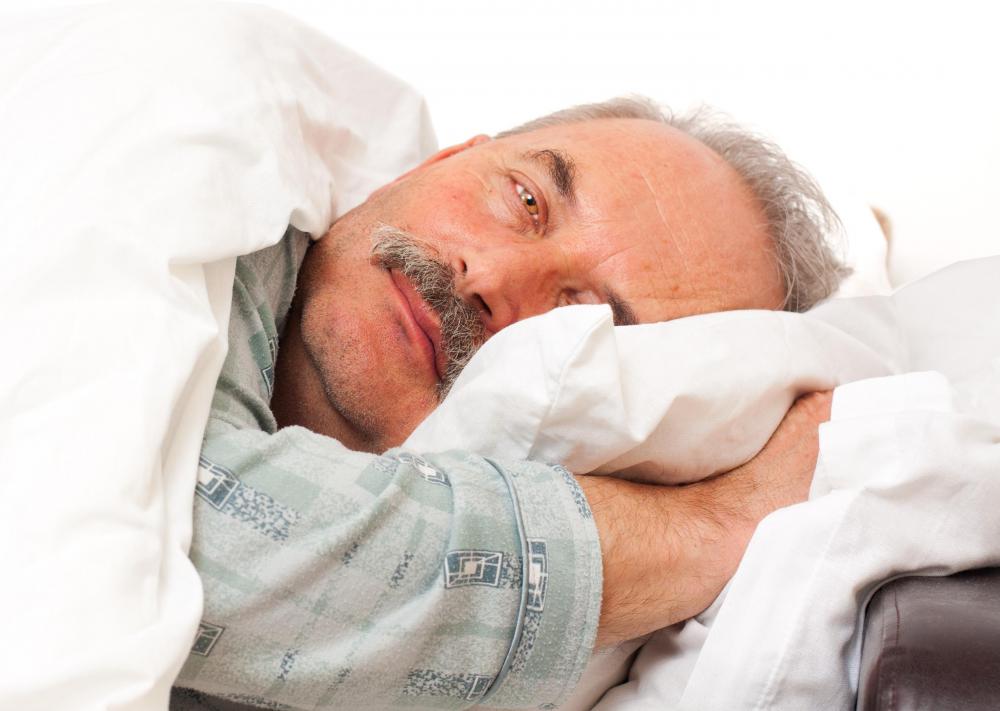At WiseGEEK, we're committed to delivering accurate, trustworthy information. Our expert-authored content is rigorously fact-checked and sourced from credible authorities. Discover how we uphold the highest standards in providing you with reliable knowledge.
What is Delayed Sleep Phase Syndrome?
Just as it sounds, delayed sleep phase syndrome is a disorder occurring when a person regularly cannot fall asleep at his or her desired bedtime. Those who experience this syndrome often take two or more hours to fall asleep, which not only often results in difficulty waking at the desired time but also often results in insufficient amounts of rest. It is considered a debilitating disorder because the sufferers sleep patterns do not adhere to the normal circadian rhythm, which is the body's biological cycle that normally recurs at 24 hour intervals. Because of the inability to sleep at night, delayed sleep phase syndrome sufferers are often excessively sleepy during the day, which interferes with their work or school.
Symptoms include insomnia, lots of energy during the evening hours, and excessive daytime drowsiness. The effects of delayed sleep phase syndrome include irritability, depression and sleep deprivation. The syndrome differs from insomnia in that patients with delayed sleep phase tend to fall asleep at nearly the same time each night/morning no matter what time they go to bed.

Delayed sleep phase syndrome often begins in adolescence; although some cases begin in the childhood years. It is rare that it starts in someone older than 30. Similar symptoms, but not the syndrome itself, may be triggered by an event like staying up all night studying or partying, or shift work.
Most patients experience restful, sound sleep and wake up normally, as long as they get the appropriate number of hours of sleep. These patients are often described as “night owls” or “night people” due to their alertness and the high level of energy that tends to occur in the later evening and night hours.
Many possible treatments exist for delayed sleep phase syndrome. Exposure to bright light in the early morning hours can be helpful. This light therapy is similar to that used for those with seasonal affective disorder.

Chronotherapy is a process of moving bedtime later by three hours each 24-hour period until a patient reaches his or her desired bedtime. Other patients have found benefits from melatonin or vitamin B12. Patients generally do not find long-term success with going to bed early, employing relaxation techniques or sleeping pills. In fact, the use of sleeping pills can aggravate the daytime drowsiness issues.

Because there is no diagnostic test to determine delayed sleep phase syndrome, a physician will take a patient’s sleep history. A patient should keep a sleep diary so that he or she can provide accurate, long-term information to the physician. Usually the symptoms must persist for at least a month for a diagnosis, but often the symptoms persist much longer.
AS FEATURED ON:
AS FEATURED ON:

















Discuss this Article
Post your comments